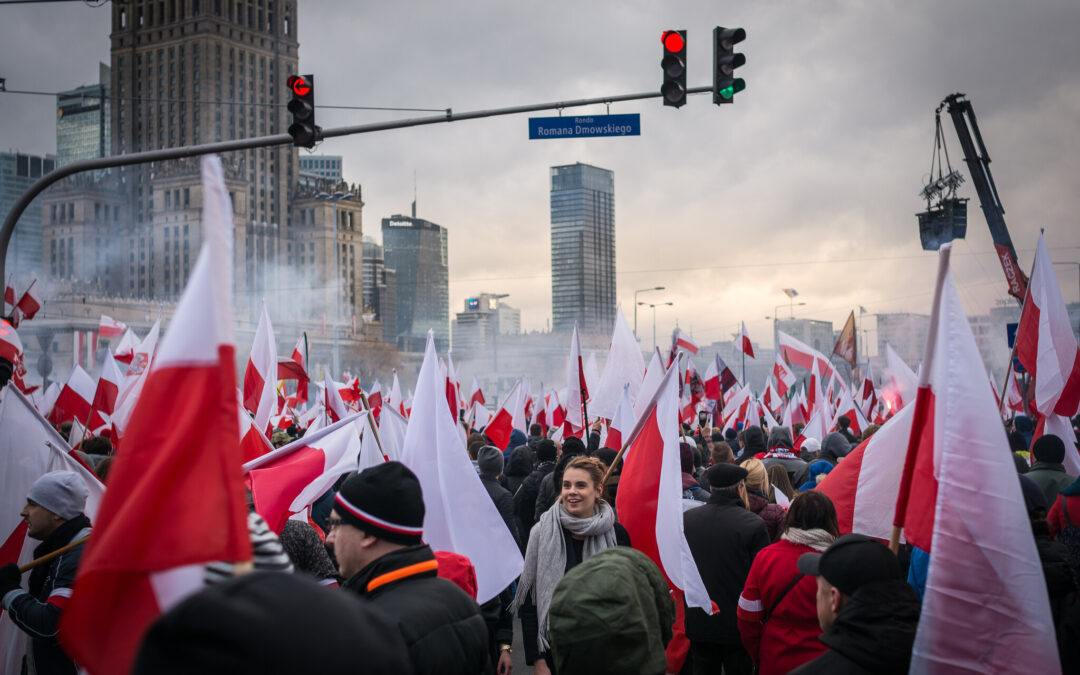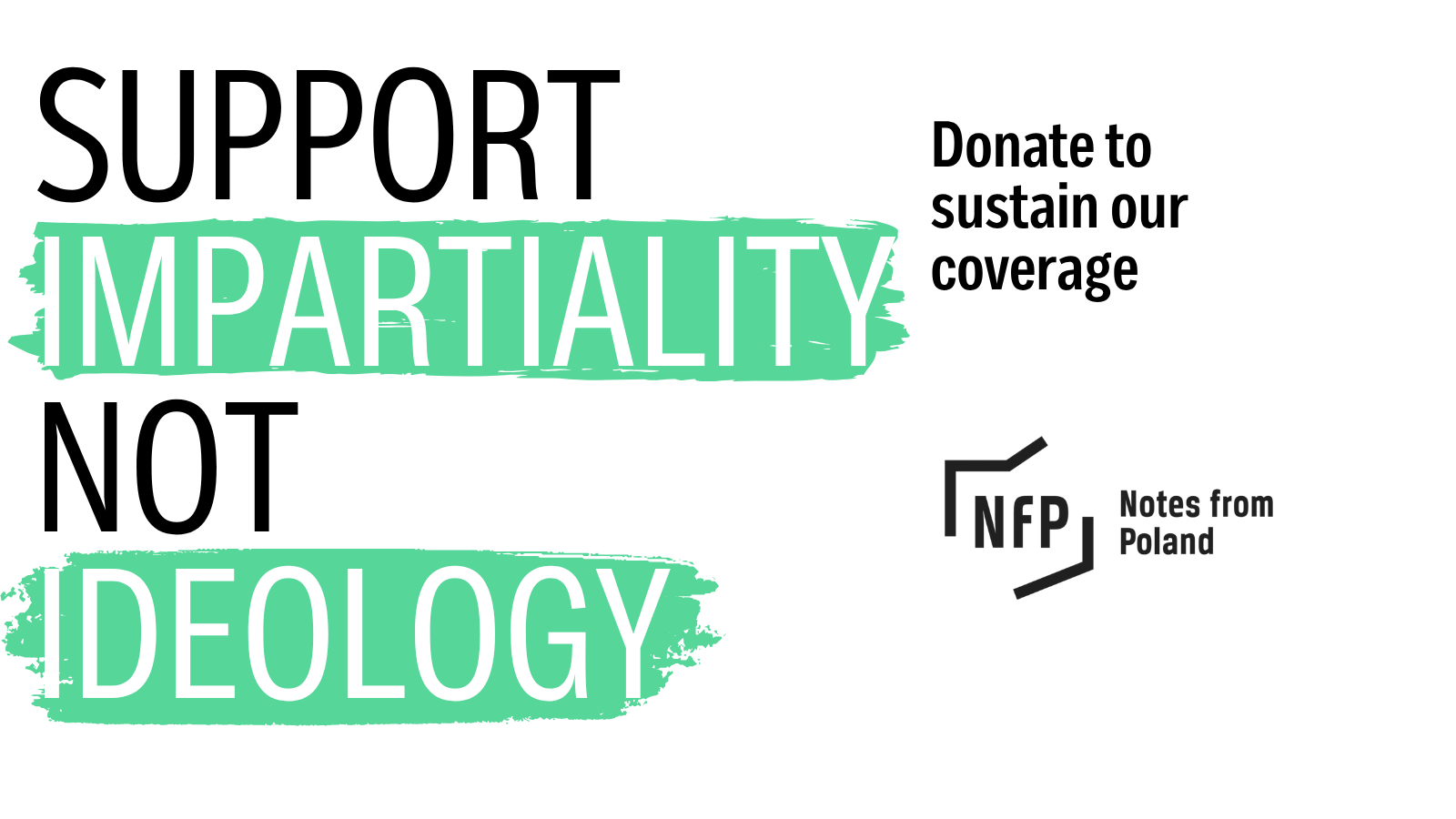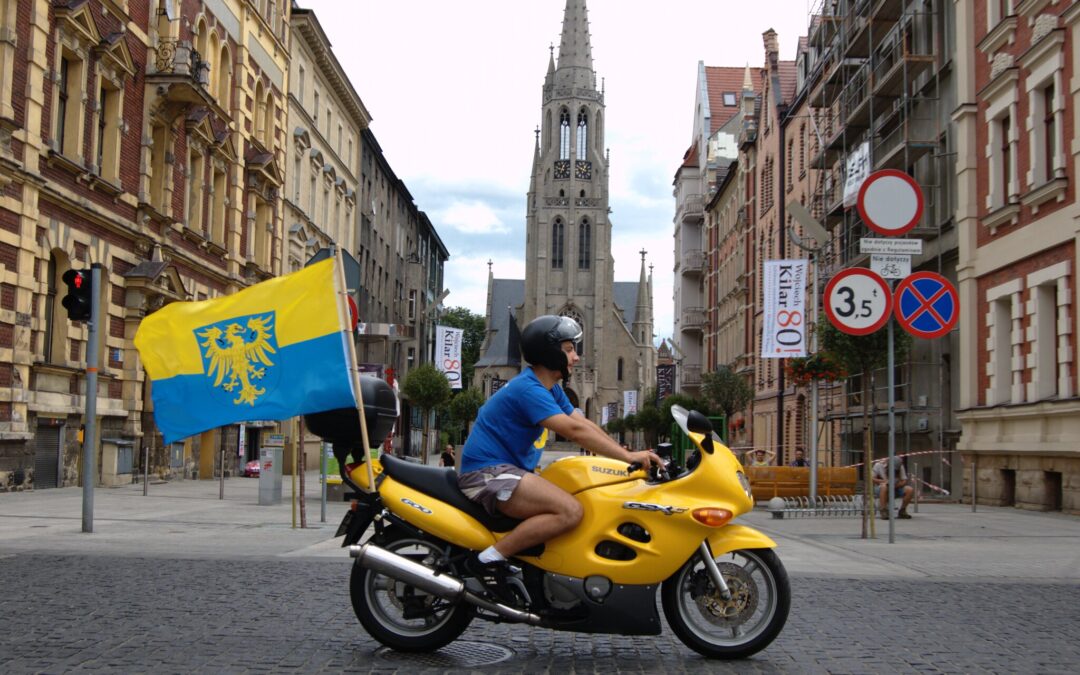Keep our news free from ads and paywalls by making a donation to support our work!

Notes from Poland is run by a small editorial team and is published by an independent, non-profit foundation that is funded through donations from our readers. We cannot do what we do without your support.
Norway’s state broadcaster NRK has apologised for describing this week’s march in Warsaw celebrating Independence Day as “Nazi”, admitting that the term was a “mistake”.
On Tuesday, the annual Independence March passed through Warsaw, with around 150,000 people taking part.
The event was founded 15 years ago by nationalist groups and continues to be organised by them, though it now attracts a wide range of participants, including many mainstream conservatives. Among those to attend this year’s event was right-wing President Karol Nawrocki.
However, in its news coverage of the event, NRK featured an on-screen label saying “Nazi marches in Poland”.
The use of such a term is particularly sensitive for Poles given that their country suffered perhaps more than any other under Nazi-German occupation in World War Two.
Around 6 million Polish citizens, 17% of the prewar population, were killed in the war, a higher proportion than in any other country. Poland also never had a collaborationist government, unlike many other European countries, including Norway.
NRK’s description of the march prompted anger in Poland. Ryszard Czarnecki, a politician from the national-conservative Law and Justice (PiS) party, Poland’s main opposition, called it “anti-Polish propaganda”. He said he felt personally offended as he had attended the march with his teenage son.
Moja Norwegia, a news service aimed at Norway’s large Polish immigrant population, reports that there was outrage among the Polish community and that Polish organisations had been issuing complaints to NRK, the Norwegian Media Ethics Commission, and the country’s Broadcasting Council.
The Polish embassy in Oslo also contacted NRK, asking it to issue a correction. On Friday, in a statement issued to the Polish Press Agency (PAP), the head of news at NRK, Ole Eivind Henden, apologised on behalf of the station.
“The term used is not NRK’s assessment of what this march was,” he wrote. “Both our nations were under Nazi occupation. It is easy to understand the feelings such a term evokes. The term ‘Nazi marches’ was unjustified and NRK apologises for using it.”
🇳🇴 PAP podaje, że norweska telewizja publiczna przyznała się do błędu i przeprosiła.
Ambasada RP w Oslo zwróciła się do Norwegów o sprostowanie określenia "marsze nazistowskie". Ci jeszcze nie odpowiedzieli.
Dziękuję @PLinNorway za szybką reakcję.https://t.co/RmmR3E7gDV
— Piotr Piotrowicz (@Piotrowicz17) November 14, 2025
In 2017, former Belgian Prime Minister Guy Verhofstadt, who was then leader of the Alliance of Liberals and Democrats for Europe Group in the European Parliament, caused similar controversy by describing the Independence March as “60,000 fascists marching in the streets of Warsaw – neo-Nazis, white supremacists”.
That prompted criticism from Poland’s then-President Andrzej Duda, who called the remarks “absolutely scandelous”. Kosma Złotowski, a PiS MEP, said the comments were “extremely offensive” and called on Verhofstadt to apologise.
A Polish nationalist activist launched legal action against Verhofstadt, accusing him of defamation and insult. In 2019, a Warsaw court requested that the European Parliament strip Verhofstadt’s immunity to face the claim.
However, in 2020, an overwhelming majority of MEPs, 696, voted against waiving his immunity, with only 59 in favour, PiS MEPs among them.
The annual Independence March organised by nationalist groups has passed peacefully through Warsaw
Among the estimated 150,000 participants was recently elected right-wing President @NawrockiKn
Members of the more liberal government, however, stayed away https://t.co/9pzx0qB8bA
— Notes from Poland 🇵🇱 (@notesfrompoland) November 11, 2025
As is the case every year, this week’s march did include sections of more radical nationalists and far-right groups, including the National Radical Camp (ONR), one of the original founders of the event. In 2021, Poland’s Supreme Court ruled that ONR can be described as “fascist”.
ONR’s section of the march was headed by a banner reading: “Stop Immigration, Time for Deportation.” Some of its members also burned a European Union flag.
Another banner seen at the march read “White Europe or No Europe”, while some individuals displayed far-right symbols such as the Celtic cross and Black Sun. However, they were a very small minority among the marchers.
All White People know deep down that there are only two outcomes: White Europe or No Europe.
Retweet to bring that out to our consciousness. pic.twitter.com/4cCrhEKcqJ
— White Lives Matter Initiative (@WLMInitiative) November 12, 2025

Notes from Poland is run by a small editorial team and published by an independent, non-profit foundation that is funded through donations from our readers. We cannot do what we do without your support.
Main image credit: TG Sokół Lublin/Flickr (under CC BY-NC-SA 2.0)

Daniel Tilles is editor-in-chief of Notes from Poland. He has written on Polish affairs for a wide range of publications, including Foreign Policy, POLITICO Europe, EUobserver and Dziennik Gazeta Prawna.




















